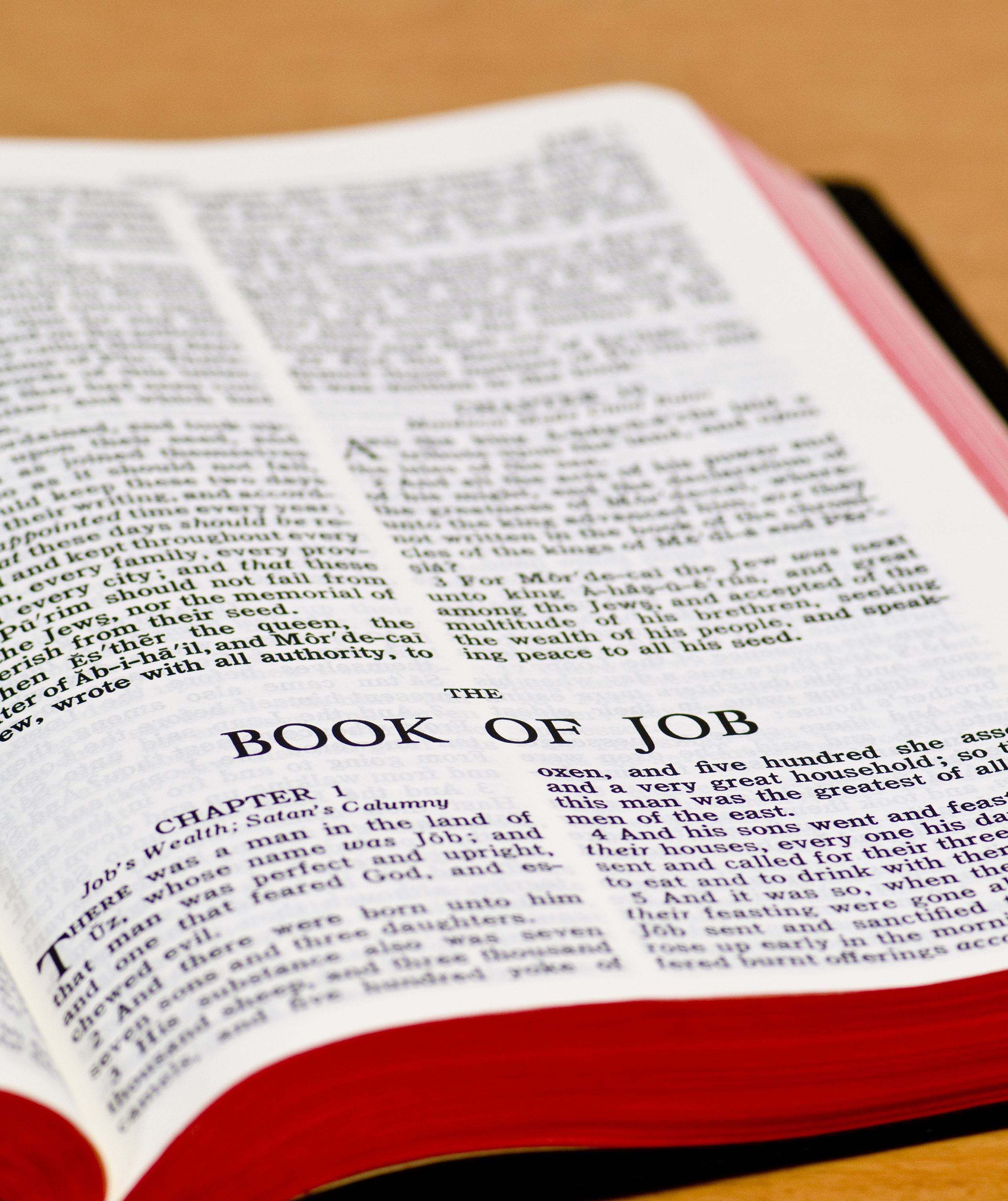The Gift of the Holy Spirit

We need to now consider one more of the terrible consequences of sin. Sin has made man to be powerless. Not only have we fallen into bondage of sin (as we saw when considering redemption) but we are completely without power to please or to serve God. Yet the creature should always (within its own limits) perfectly serve its Creator.
So we must have power both to deliver us from the internal paralysis produced by sin and to enable us to properly go through external circumstances in serving the will of God. We get this power by the indwelling of the Spirit of God.
Something less might have been sufficient, but God wonderfully gave us His Holy Spirit. When the risen Christ was about to return to the glory, He told His disciples that, “You shall receive power after the Holy Spirit is come upon you and you shall be witnesses unto Me” (Acts 1:8). As seen in Acts 2, this promise was fulfilled 10 days later on the day of Pentecost.
We have seen that Ezek. 36, 37 prophesy as to the work of new birth and quickening which will be worked in the remnant of Israel in a future day to prepare them for millennial blessing. Both chapters also mention the gift of the Holy Spirit: “I will put My Spirit within you, and cause you to walk in My statutes, and you shall keep My ordinances, and do them (36:27)…and shall put My Spirit in you, and you shall live” (37:14). As a consequence, there will be Spiritual life in Israel which will express itself in active obedience to God’s will. They will want to do as God directs. The same thing is predicted at the end of Joel 2, which Peter quoted on the day of Pentecost, saying that what had just occurred in their midst was a sample of what Joel had foretold. However, the gift of the Holy Spirit at Pentecost had fullness and permanence that was never contemplated in Old Testament times.
New birth is produced by the Holy Spirit and it gives us a new nature which is spirit in its inherent, basic character (Jn. 3:6). That which is produced by the Holy Spirit’s action partakes of His own nature. But new birth must be distinguished from the Holy Spirit’s indwelling of people who are already born again, which is what occurred at Pentecost. Also note that power is connected with the Holy Spirit personally indwelling the believer’s body and not with the new nature produced by the Holy Spirit. See Rom. 7:7-8:4.
In Rom. 7, we see the experience of one who is born again since he has “the inward man (which) delights in the law of God” (v. 22). Consequently, he desires that which is good but finds that he is unable to practice it. Only when he finds the Deliverer in “Jesus Christ our Lord” (v. 25) and knows “the law (control) of the Spirit of life in Christ Jesus” (8:2), does he have the power to overcome “the law (control) of sin and death” (8:2) and to fulfill the things which the law righteously required (8:4). Delivering-power is only found in Christ and in His Holy Spirit.
The above verses show us the power that delivers us from the internal paralysis that sin induces. This deliverance must come before we can be marked by power in witness to our risen Lord. See Acts 1:8 and Lk. 24:49. We must remember that even as saints, we do not have inherent power. Rather, all power for us comes in the person of the Holy Spirit who has been given to us.
The 11 men to whom the risen Lord spoke in Lk. 24:49 were apostles on whom the foundation of the Church was later built. Previously, there had been a powerful work of the Holy Spirit in them, and for over three years they had been especially instructed by the Lord Himself. Yet none of these things gave them power. However eager they were to begin their great work of witness, they were not able to do so until the Holy Spirit Himself was given to indwell them. They didn’t bear witness at all of the risen Lord until then. But immediately after the Spirit’s indwelling, their mouths were opened with great and wonderful results.
At Pentecost, the disciples were not only indwelt by the Holy Spirit but were filled with Him (Acts 2:4). To be filled with the Holy Spirit means that there is no force allowed to be active within the believer to oppose or hinder the Spirit’s power. This filling of the Spirit is not permanent as is His indwelling, for Peter was again filled with the Spirit in Acts 4:8 and yet again in Acts 4:31. When the Holy Spirit thus fills a believer, the believers flesh (old nature) has been judged and made quiet. The Spirit’s power is then irresistible. Stephen illustrates this. Being full of the Holy Spirit, he was “full of faith and power” and his opponents “were not able to resist the wisdom and the Spirit by which he spoke” (Acts 6:8-10). Unable to resist him by words, they became violent and stoned him to death, thus destroying the temple of the Holy Spirit.
The history of the early Church as recorded in Acts shows that the filling of the Holy Spirit occurred only occasionally, even with the Apostles. However, all Christians are now exhorted in Eph. 5:18 to “be filled with the Spirit,” and this is surprisingly contrasted to being “drunk with wine.” When the wine is drunk in excess, it assumes control of the person and carries him outside of himself. Such action is from Satan and is evil. However, the Holy Spirit also can completely control a person and carry him outside of himself, but in a way that is divine and good. Here in Eph. 5:18, the very good is contrasted with the very evil. So, if one is filled with the Spirit, then obviously, all that is not Himself and of Him is excluded. There’s no room left for other things.
It is these other things (which so often fill our thoughts and use up our time and energies) that hinder us from having the power that we desire for witness and service. These other things are not just evil things but the many trivial and profitless things that we so often get involved in. Hence, we read, “Grieve not the Holy Spirit of God” (Eph. 4:30). If we do grieve Him, we don’t lose His indwelling-presence because the verse continues, “by Whom you are sealed unto the day of redemption.” However, for as long as we continue to grieve Him, we do lose many of the benefits of His presence such as spiritual power and spiritual joy. Some of the things that grieve Him are malice, bitterness, wrath, anger, clamor, and evil speaking (v. 31). Since these things are so often seen in us, the wonder is that His power is manifested at all!
The Apostle Paul was called and saved so that he might be a pattern for us to follow (1 Tim. 1:16). Therefore, we can see how the Holy Spirit should be working in us by looking at how the power of the Holy Spirit worked in Paul’s life of service and witness. There was an extraordinary range to his service. Within about 25 years, he had evangelized people over hundreds of thousands of square miles, traveling on foot with an occasional ride on a ship or on an animal. A miraculous feat indeed! It was only possible because he was energized by the Holy Spirit.
1 Cor. 2:1-5 shows the simplicity of his preaching. All merely human adornments were discarded so that the central fact of the cross of Christ might be more plainly revealed. His preaching was marked by the “demonstration of the (Holy) Spirit and of power” so that the faith of those who received his message would not stand in “the wisdom of men but in the power of God.”
2 Cor. 3:1-6 and 4:1-7 show us the life-giving-power of Paul’s ministry. His converts were “the epistle (letter) of Christ…written…with the Spirit of the living God, “for the Spirit gives life.” Both life and light are connected in this passage, for Paul says, “the light of the knowledge of the glory of God in the face of Jesus Christ [shines through] earthen vessels, that the excellency of the power may be of God, and not of us.”
2 Cor. 10:1-6 and Eph. 6:12-18 show us the power of and need for spiritual weapons in the aggressive conflicts of the Gospel. Satanic powers have fortified themselves in human minds and formed strongholds of human reasoning and lofty thoughts which can only be overthrown by the Holy Spirit’s spiritual weapons.
1 Thess. 1 and 2 give us a lovely picture of the spiritual fruits seen in the lives and characters of new believers when the Gospel comes “not…in word only, but also in power, and in the Holy Spirit, and in much assurance” (1:5). While they served the living and true God and waited for His Son from heaven, the Thessalonian believers were followers of the Lord, examples to other believers, and preachers of the Word which had saved them.
Finally, 2 Tim. 1 shows the Holy Spirit as the power for endurance and for love-the Spirit is characterized by
“the spirit…of power, and of love, and of a sound mind” (v. 7) so that the believer is enabled to be “a partaker of the afflictions of the Gospel according to the power of God” (v. 8). The believer is also able to “keep by the Holy Spirit Who dwells in us” the good deposit of truth which he has been entrusted (v. 14).
As we see the above, we can truly say that God’s gift of the Holy Spirit, as well as His Gift of His Son, are both unspeakable (2 Cor 9:15).
Now, some people believe that since God is unchangeable and since the Holy Spirit’s power at the beginning of Christianity was very great and was displayed in signs and wonders, all this should be seen today. God is indeed unchangeable but this does not mean that He cannot vary the way He deals with men, according to His wisdom, to meet changing situations. He has done this in the past.
The display of His power in miracles has never been constant. In fact, miracles have only been seen at three times in man’s history (which covered a total of about 300 years, Ed.). Miracles were first seen when God, through Moses, intervened to bring Israel out of Egypt and into Palestine and begin the Law-system. Miracles were next seen about 500 years later when God intervened through Elijah and Elisha to recall Israel to the broken-law and to testify of His goodness. Miracles were not seen for another 900 years until God intervened in Christ and shortly thereafter formed the Church through the Apostles. Almost no miracles were performed at other times. “John (the Baptist) did no miracle” (Jn. 10:41). He lived just before the third great miracle-time began in connection with Christ.
Contrary to popular belief, these miraculous signs were not really a great display of God’s power since they were only effective for earth, for time. For instance, in Acts 9, Aeneas was healed and Dorcas was raised from the dead, but they both died some years later and the miracles were as if they had never been. But Acts 9 opens with the conversion of Saul of Tarsus. His traveling-companions were speechless with amazement even though they didn’t understand the miracle. It was, of course, a great spiritual miracle which still affects the whole world. In fact every true conversion is a miracle which abides to eternity and these great miracles are happening daily.
Paul’s preaching displayed the power of the Holy Spirit. Sadly, we can’t speak of most modern preaching in that way. The fact is that much modern preaching is characterized by the very things which Paul avoided so that his preaching might be in the power of the Holy Spirit. He renounced all dishonesty, including the deceitful handling of the Word of God (2 Cor. 4:2) as well as so-called reputable things such as excellency-of-speech and human wisdom (1 Cor. 2:1-5).
Yet, even when the Word is faithfully preached today without resorting to human methods, there still seems to be a lack of power. Eph. 4:30 and 1 Thess. 5:19 may help us understand why. Often the Holy Spirit is grieved by the servant’s life, walk, and attitude, and hence, there is little fruit in what he does. Even when this isn’t the case, the Holy Spirit is still grieved by the general low condition among Christians. Further, the Holy Spirit is quenched (cooled off) by the introduction of human organization (as seen in all denominations today, Ed.) which does not allow for His free action among the Lord’s people. Still further, there is a growing unbelief on the part of many who claim to be servants of God, so that they deny and ridicule almost every truth which they are pledged to uphold. Thus, the Holy Spirit is grieved and quenched right in the middle of that which calls itself the Christian church, and that fact alone accounts for His withholding any great display of His power.
However, the Holy Spirit is still working and people are being converted and blessed, even though His work is proceeding in quieter and less-noticed ways than in the early days of the Apostles.
Power for victory in our own lives is just as important as power for service. We can experience power-for-victory by walking in the Spirit (Gal. 5:16). Eph. 1:13 says that the Holy Spirit was given to us when we believed the Gospel for our salvation. Upon believing, the Holy Spirit marks us out (seals us) as belonging to God. But then we are to walk in the Spirit-He is to be the practical and real Source and Energy of our lives and activities. Walking is one of our first activities as a baby, so God uses it as a figurative expression for all our activities. Our thoughts, speech, and actions are to be under the Holy Spirit’s control. Only then will we not be fulfilling the desires of the flesh, our old nature (Gal. 5:17). The Holy Spirit wields an uplifting power that is much greater than the downward drag of the flesh, and we can experience that power if we walk in Him. Read all of Gal 5:13-26.
How do we walk in the Sprit? Read Gal. 6:7-9. Our daily lives are made up of sowing and reaping, as if we go forth each day with a seed-basket on each shoulder. We may put one hand in the flesh-basket and sow to the flesh, or the other hand into the Spirit-basket and sow to the Spirit. In other words, we may yield to and do the things which merely satisfy the flesh or we may give ourselves to the things of the Holy Spirit and sow seeds that will be fruitful to God’s glory. God does not do this for us. We do it ourselves! All day long, we are doing one or the other. Into which basket are you continually placing your hand? The secret of walking in the Spirit is the determined refusal of the flesh-basket and the determined, active use of the Spirit-basket!
However, we see many Christians who are not guilty of serious outward misconduct but who are still without much of the Spirit’s liberty or power. With such, there are probably serious internal lapses in conduct such as failure to concentrate on God’s things or just plain spiritual laziness. The Holy Spirit is here to take the things of Christ and to show them to us, and He will be very grieved by our inattention, inactivity, and laziness. If you went to someone with important news about a much loved mutual friend and he began to interrupt your story with unimportant remarks about other things, or if you found him falling asleep in his chair, you would quit telling your story and be grieved and angry.
The Holy Spirit is sensitive about all that concerns the glory of Christ. Inattention will grieve Him as much as open sin. Therefore, let each of us ask God to show us how much of our own spiritual poverty and lack of power is a result of both our outward and inward conduct.





